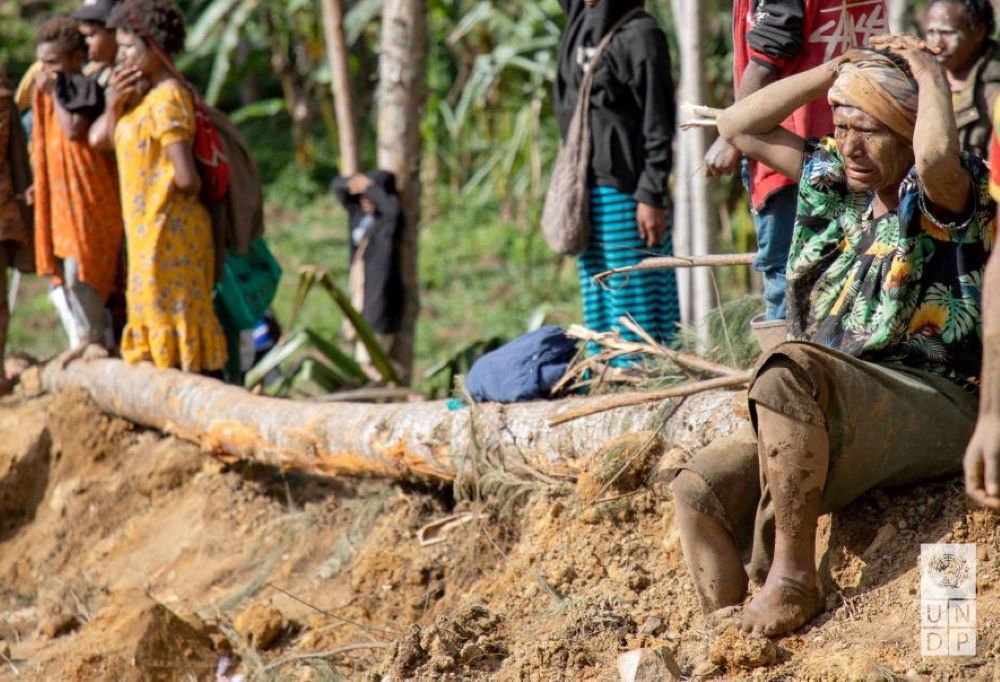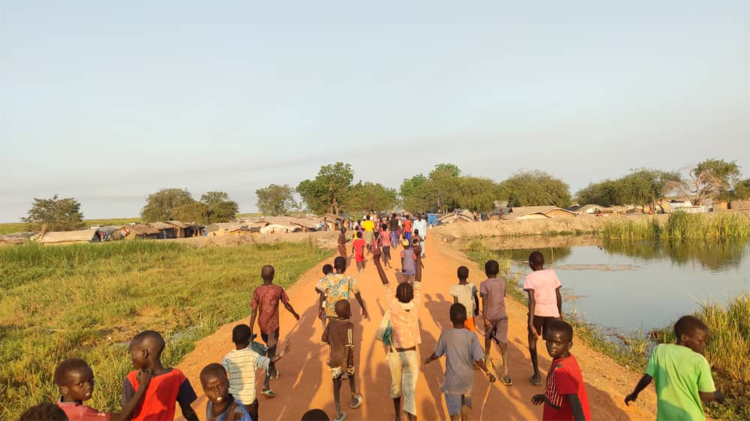Asia Pacific leaders use papal trip to call for greater climate action
Pope Francis’ dogged two-week journey through Asia and Oceania allowed him a chance to highlight some signature themes of his papacy, but when it came to his concern for combating climate change, other world leaders were just as eager to use the pontiff’s visit to issue clarion calls of their own for greater global action. “Your Holiness, […]



Pope Francis’ dogged two-week journey through Asia and Oceania allowed him a chance to highlight some signature themes of his papacy, but when it came to his concern for combating climate change, other world leaders were just as eager to use the pontiff’s visit to issue clarion calls of their own for greater global action.
“Your Holiness, climate change is real,” were the impassioned words of the governor general of Papua New Guinea, Bob Dadae, when the pope met with government and civil society leaders on Sept. 7 upon his arrival in the South Pacific nation.
“The rise in the sea level is affecting the livelihoods of our people in the remote islands of PNG, and across the Pacific,” Dadae continued. “We appreciate the work of the Catholic missionaries, and those from other Christian faiths, who continue to serve those that are affected by climate change.”
Dadae has good reason to be concerned: The country is at extreme risk of severe weather events and it has been deemed to be among the top-20 countries most vulnerable to climate change, with landslides and flooding jeopardizing thousands of lives every year.
With nearly 75% of his country living in poverty, Dadae didn’t hesitate to use the pope’s visit — in the presence of the world’s media who was traveling with him — to put a spotlight on how the country’s chief afflictions intersect.
“The experience across the Pacific is that Islands are sinking, people are affected and displaced, while the world continues to talk,” the Lutheran governor general lamented to the pope. He begged Francis to continue to use his voice for “support for global action and advocacy on climate change.”
“We want the world to know that there is no more time for discussion,” he said. “What the world needs is commitment for action.”
Francis himself had a similar takeaway last year in Laudate Deum, his apostolic exhortation “on the climate crisis,” writing “our responses have not been adequate” to date in reducing heat-trapping greenhouse gas emissions at the scale and speed commensurate with what scientists say is needed to avert the worst impacts of climate change.
One week after Francis met with the Papua New Guinea leader, in a very different location, a similar scene played out.
This time, the pope was seated alongside Tharman Shanmugaratnam, president of Singapore, Asia’s wealthiest nation.
“We are seeing accelerating climate change, making the world less safe for humanity,” the president told the pope on Sept. 12. “The global community needs to make more determined and forthright efforts to address each of these challenges.”
“Your Holiness’ support for the 2015 Paris Agreement, and your call to action for an agreement on climate action at COP28, have inspired many,” he continued. He also added his gratitude for Francis’ 2015 encyclical “Laudato Si’, on Care for Our Common Home,” in which the pope endorsed the scientific consensus on the need for global efforts to confront climate change.
“This message is all the more relevant as the world struggles to meet growing energy demand while achieving a transition to clean energies,” the president said, dedicating nearly a third of his address on the climate crisis.
In his own comments during the meeting, Francis said there’s no hiding from the environmental crises facing the world today. “We should not underestimate the impact that a small nation like Singapore can have in this regard,” he added.
“Your unique location gives you access to capital, technology and talent, resources that can drive innovation in order to take better care of the health of our common home.”
Upon his arrival in the Indonesian capital of Jakarta at the start of his trip — a place known as “the sinking city” due to an estimated 40% of the city already below sea level and Indonesian leaders moving ahead with plans to move the capital due to sea rise — the pope and the grand imam of southeast Asia’s largest mosque, issued a joint declaration calling for religious leaders to band together in the fight against climate change.
“This ongoing environmental crisis has become an obstacle to the harmonious coexistence of peoples,” the declaration stated, noting that interreligious dialogue is an effective response to worsening global conflicts and climate conditions.
In December, Francis had intended to travel to Dubai for the United Nations climate conference known as COP28, where he was expected to urge world leaders to commit to multilateral action toward reducing greenhouse gas emissions. Due to respiratory issues, however, the pope was forced to cancel his visit at the last minute. Cardinal Pietro Parolin, Vatican secretary of state, delivered the pope’s remarks in his stead.
The responses to the pontiff’s travels through Asia and Oceania showed world leaders and religious leaders alike still looking to Francis to use his voice on their behalf in the face of environmental disasters.














